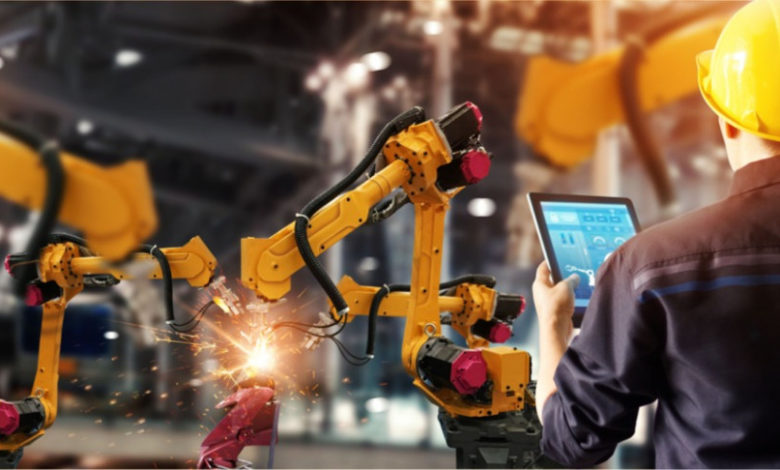Chemical Factories To Be Ran By Artificial Intelligence in the Future

Artificial Intelligence or AI has been one of the fastest-growing industries today. Who would have thought that things that were inconceivable back then, such as AI-powered machine translators and AI assistants, were possible? Now, sites like robots.net have a ton of information about AI, and it’s benefits to society.
But how about chemical factories and manufacturers? What’s the future of Artificial Intelligence for these factories, and how are they able to capitalize on them? Some are already ready to integrate AI into their system and operations, but some are still reluctant. In this article, we’ll find out the future of AI tech in the chemical manufacturing industry.
Challenges Chemical Factories Face
Manufacturers and Chemical factories mainly face ongoing concerns such as improving production line, lead time, analyzing, measuring, minimizing errors to enhance productivity. Production optimization is the top priority of manufacturing and chemical companies.
With the complex processes of chemical manufacturing, one of the challenges they face are the different inefficiencies in production. Losses due to failed side products, instabilities, and product impurities take a massive hit in costs that significantly affect revenue.
Production optimization plays a critical role in chemical factories because improving production processes equal to faster production lead time. It also lowers costs that result in a significant increase in revenue. Chemical companies will find ways and means to help augment their production. Hence, the use of artificial intelligence.
A significant number of chemical manufacturing companies are now turning to artificial intelligence to increase production optimization. They believe that using AI can improve and lessen inconsistencies and inefficiencies in chemical processes, and provide solutions to identify and anticipate such inefficiencies.
How AI Can Revolutionize the Chemical Manufacturing Companies
With these problems and complications, chemical manufacturing companies face, where how can AI provide solutions to this? For one, by implementing AI tech to chemical production lines, manufacturers gain the ability to leverage them to look for production disturbances to improve production.
Imagine being able to create pesticides with high potency against targeted insects with little to none toxicity level to humans or being able to load forecasts for materials and resources like oil, minerals, natural gas, and water to meet power and energy supply and demand.
With AI technologies like Machine Learning and Deep learning, along with other types of Artificial Intelligence, predicting data and accurately processing these data, Chemical manufacturers can create intelligent chemical processing systems that can boost production effectiveness.
The chemical industry significantly affects other sectors like cosmetics, automotive, energy, and even the food industry. With this in mind, chemical companies investing in machine learning technology and artificial intelligence to speed up product development and production optimization can also have direct and indirect impacts on the development of other industries as well.
Chemical Companies Embracing AI
This pace in the advancement of AI is just the beginning. Industry-leading chemical companies like BASF, Sinopec, and DowDuPont, have already made advancements. Many industries that develop medicines, producing chemical products and design materials will benefit from the proper use of artificial intelligence.
Partnerships with AI experts and massive investments and have already been made and are already taking place to integrate machine learning and artificial intelligence for faster development of chemical products.
With the applications of artificial intelligence, chemical companies are now creating unique ideas for the chemical industry like preventive maintenance, gas detection alarms, asset management, and phase diagram predictions. These kinds of ideas are only possible by using machine learning and artificial intelligence.
The Impact of AI in the chemical industry
Machine learning and artificial intelligence can improve both product and process engineering. With artificial intelligence, we can screen molecules according to their properties like figuring out if specific molecules become highly active towards the intended target while minimizing adverse side reactions.
We can also use artificial intelligence to choose the optimal pathway of synthesizing the molecules or compounds in terms of costs, availability of raw materials and process safety, pressures and reactions, environmental problems, choice of solvents, and energy conditions.
In the future, we may even be able to ultimately create simulations on chemical reactions to speed up product cycles. The use of machine learning can vastly reduce scientific dead ends and lengthy physical experiments.
Takeaway
AI today is evolving several industries from multiple angles. But when chemical companies make full use of machine learning as it is today, the evolution will have a positive domino effect on the economy. AI can, and possibly will dictate and spearhead how we utilize our resources and shape the earth.
The chemical industry is the core and the beginning of many other sectors and industries such as healthcare, automotive, construction, consumer products, energy, manufacturing, cosmetics, transport, and agriculture. As a result, the future of AI in the chemical industry is bright and exciting with many more discoveries and improvements to expect.





